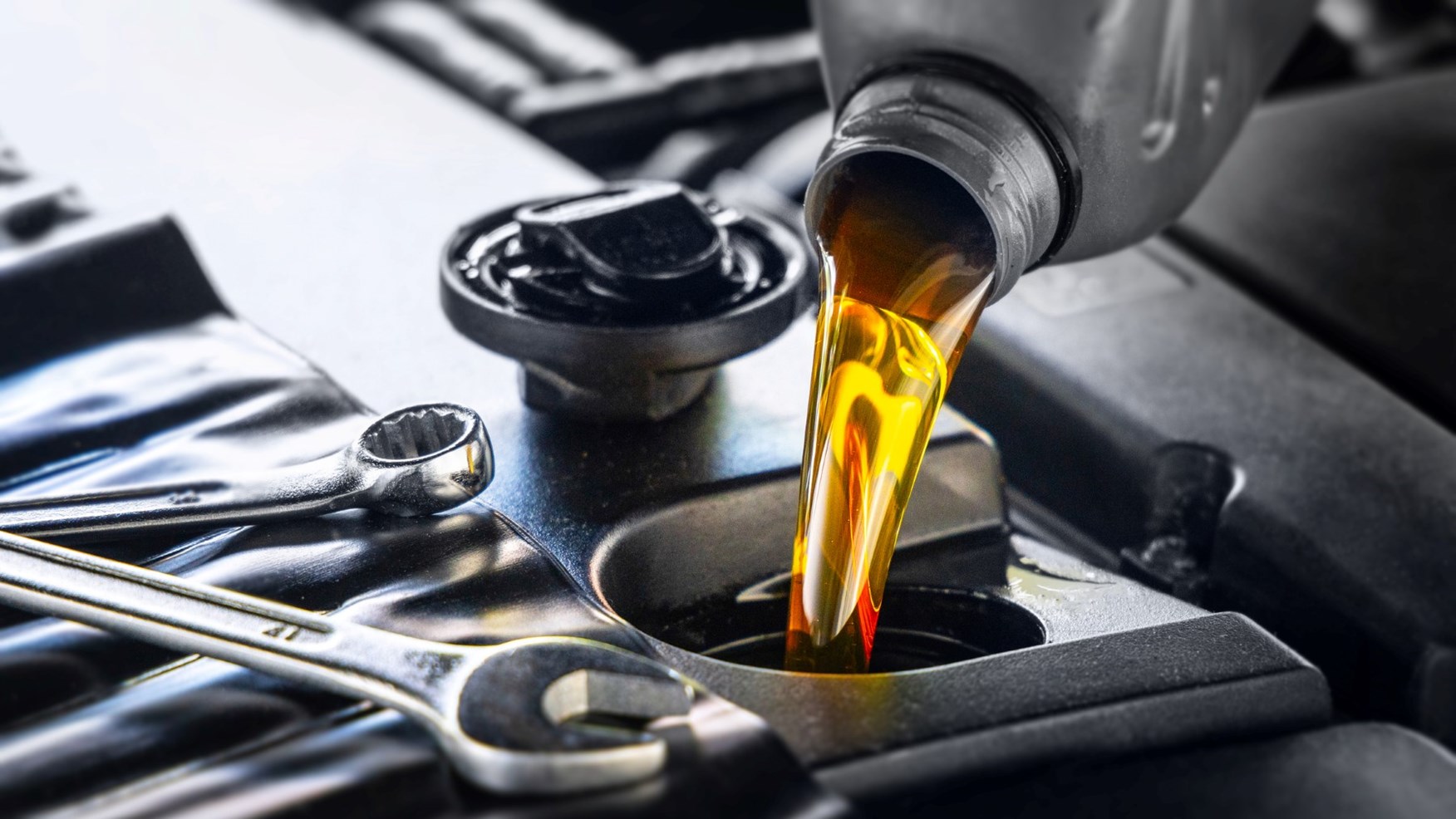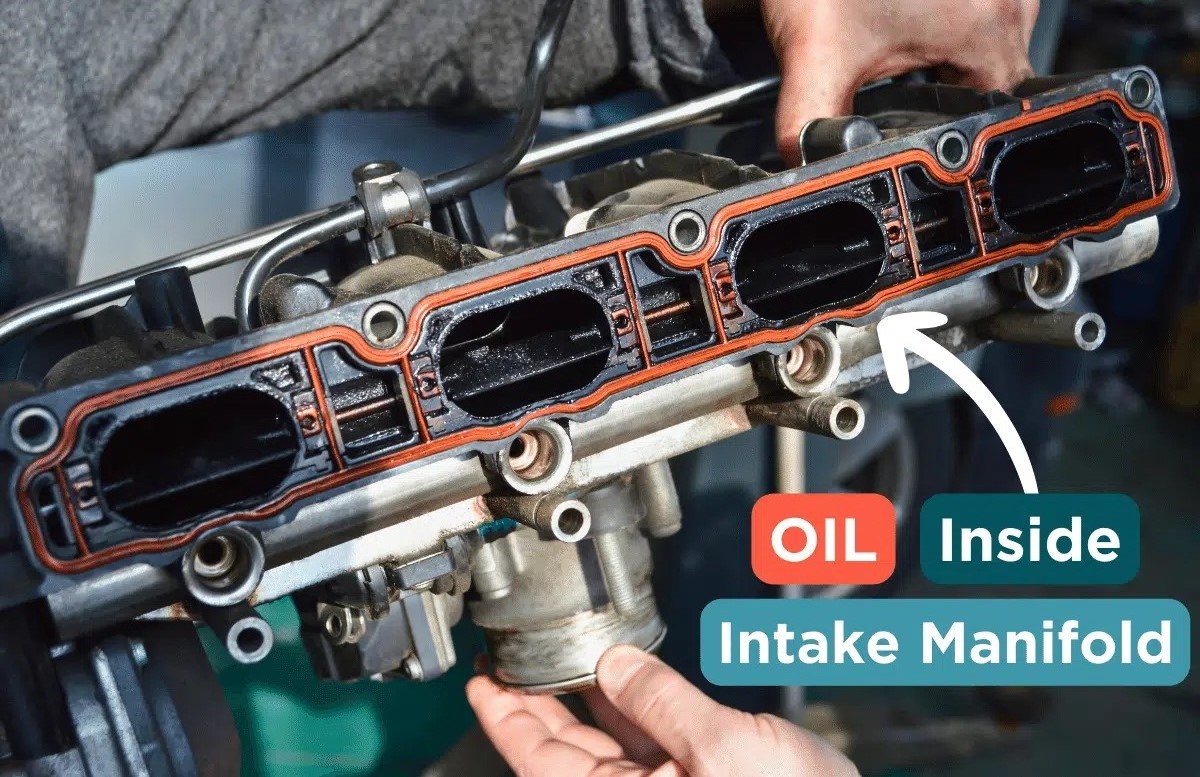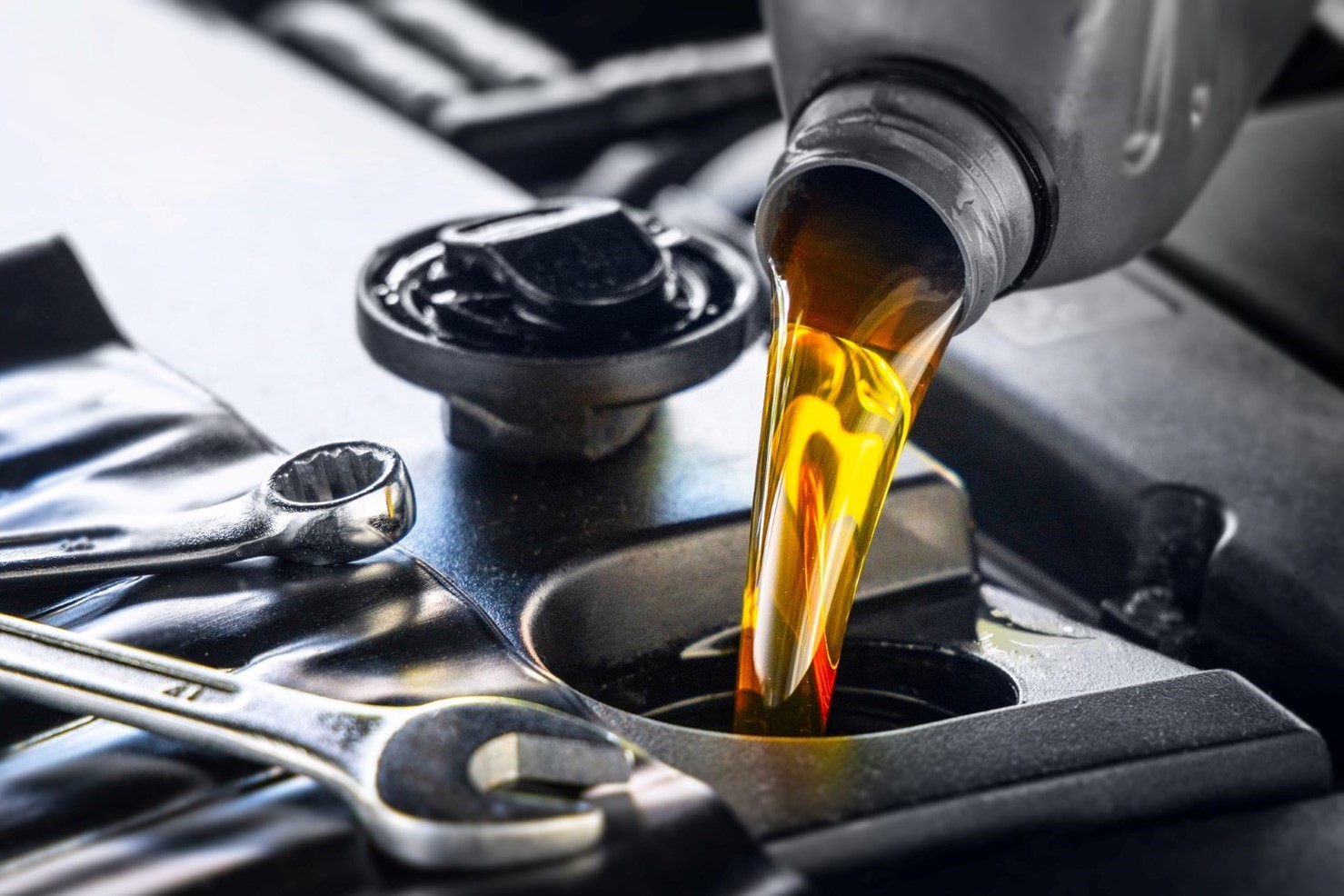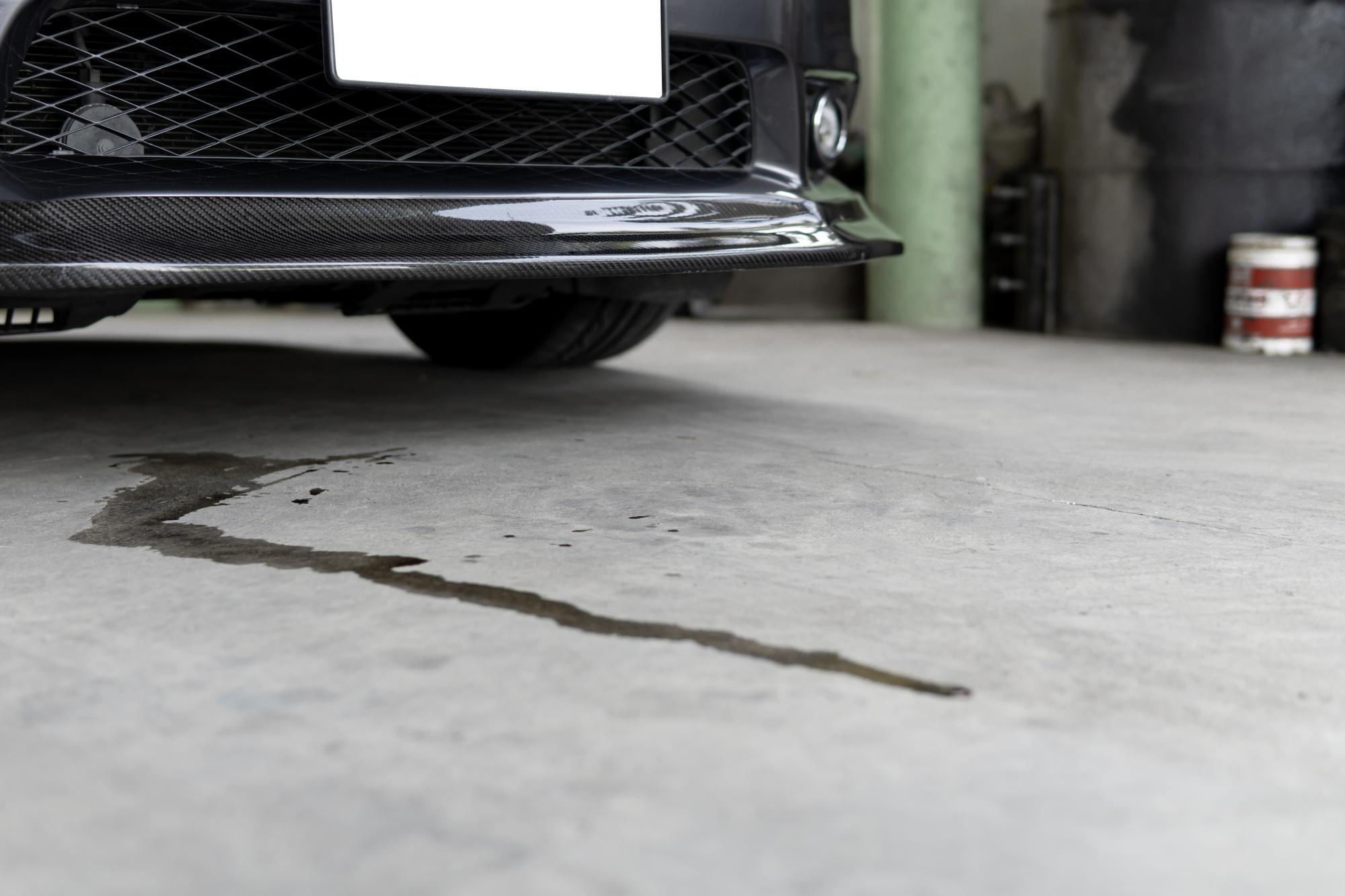Home>Automotive>The Shocking Truth About Engine Oil Leaks And How Much It Will Cost You


Automotive
The Shocking Truth About Engine Oil Leaks And How Much It Will Cost You
Published: January 4, 2024
Learn about the shocking truth of engine oil leaks and the potential cost. Get expert advice on automotive maintenance.
(Many of the links in this article redirect to a specific reviewed product. Your purchase of these products through affiliate links helps to generate commission for Noodls.com, at no extra cost. Learn more)
Table of Contents
Introduction
Engine oil leaks are a common issue that many car owners encounter at some point in their vehicle's lifespan. These leaks can lead to a myriad of problems, ranging from minor inconveniences to major engine damage. Understanding the causes, signs, potential damage, and costs associated with engine oil leaks is crucial for every car owner. By gaining insight into these aspects, individuals can take proactive measures to prevent oil leaks and address them promptly when they occur.
In this comprehensive guide, we will delve into the shocking truth about engine oil leaks and shed light on the potential ramifications of neglecting this issue. From identifying common causes and warning signs to discussing the financial implications of addressing oil leaks, this article aims to equip readers with valuable knowledge to safeguard their vehicles and wallets.
Let's embark on a journey to uncover the mysteries of engine oil leaks and gain a deeper understanding of their impact on our beloved automobiles.
Common Causes of Engine Oil Leaks
Engine oil leaks can stem from various sources within a vehicle's complex system. Identifying the root cause is crucial for effectively addressing the issue. Here are some common culprits behind engine oil leaks:
-
Worn Gaskets and Seals: Over time, the gaskets and seals in an engine can degrade due to exposure to heat and pressure. This deterioration can lead to oil seepage, resulting in leaks. Common areas prone to gasket and seal degradation include the valve cover, oil pan, and timing cover.
-
Loose or Damaged Oil Drain Plug: The oil drain plug, located at the bottom of the oil pan, is essential for draining old oil during routine oil changes. If the plug becomes loose or damaged, it can cause oil to leak from the oil pan.
-
Degraded Oil Pan: The oil pan, which houses the engine's oil supply, is susceptible to corrosion and physical damage. Cracks or holes in the oil pan can lead to oil leaks, jeopardizing the engine's lubrication.
-
Worn or Damaged Oil Filter: A faulty oil filter can result in oil leaks if it fails to effectively trap contaminants. Over time, the filter's sealing gasket may deteriorate, allowing oil to escape.
-
Faulty Oil Filler Cap: The oil filler cap seals the engine's oil reservoir. If the cap is damaged, worn, or improperly secured, it can cause oil to seep out, leading to leaks.
-
Overfilled Oil Level: Excessive oil in the engine can lead to increased pressure, potentially causing gaskets to fail and oil to escape.
-
Damaged Cylinder Head: A cracked or warped cylinder head can result in oil leaks, as it houses the engine's valves and camshaft, which are crucial components for proper oil circulation.
Understanding these common causes of engine oil leaks empowers car owners to proactively monitor their vehicles for potential issues. By staying vigilant and addressing these underlying factors, individuals can mitigate the risk of oil leaks and preserve the integrity of their vehicles' engines.
Signs of Engine Oil Leaks
Detecting engine oil leaks early is crucial for preventing potential damage to the vehicle's engine and ensuring safe driving conditions. Car owners should remain vigilant and be able to recognize the following signs that may indicate an engine oil leak:
-
Visible Oil Puddles: One of the most apparent signs of an oil leak is the presence of oil puddles beneath the vehicle after it has been parked. The color and consistency of the oil can vary, but it typically appears dark brown or black and feels slick to the touch.
-
Burning Odor: If a burning smell emanates from the engine compartment or exhaust, it could indicate that oil is leaking onto hot engine components or the exhaust system. The distinct odor of burning oil is a clear indicator of a potential leak.
-
Excessive Exhaust Smoke: When oil leaks into the combustion chamber, it can result in blue or grayish smoke emitting from the exhaust. This smoke is often more noticeable upon initial startup or acceleration, signaling the presence of an oil leak.
-
Low Oil Level: Regularly checking the engine oil level is essential for monitoring potential leaks. A sudden drop in oil level, as indicated on the dipstick, may signify an oil leak that requires immediate attention.
-
Engine Overheating: Insufficient lubrication due to an oil leak can lead to increased friction and heat within the engine. If the vehicle's temperature gauge shows higher-than-normal readings or if the engine overheats, it could be a result of inadequate oil circulation caused by a leak.
-
Unusual Engine Noises: A lack of proper lubrication due to an oil leak can result in unusual engine noises, such as knocking or ticking sounds. These noises may indicate that the moving parts within the engine are not adequately lubricated, potentially leading to costly damage if left unaddressed.
-
Decreased Fuel Efficiency: An oil leak can impact the overall performance of the vehicle, including fuel efficiency. If the vehicle's gas mileage noticeably decreases without any other apparent issues, it could be a sign of an oil leak affecting the engine's efficiency.
Recognizing these signs empowers car owners to take prompt action when an engine oil leak is suspected. By addressing leaks early, individuals can prevent extensive damage to their vehicles and avoid costly repairs in the long run. Regular inspections and maintenance play a vital role in maintaining a healthy and efficient engine, ensuring a smooth driving experience for years to come.
Potential Damage Caused by Engine Oil Leaks
Engine oil is the lifeblood of a vehicle's engine, providing crucial lubrication to minimize friction and heat generation within the moving components. When an oil leak goes unnoticed or is left unaddressed, it can lead to a cascade of detrimental effects, potentially resulting in severe damage to the engine and other vital systems. Understanding the potential consequences of engine oil leaks underscores the urgency of promptly resolving this issue.
-
Engine Wear and Damage: Insufficient oil levels due to leaks can result in increased friction and wear on vital engine parts, such as the pistons, camshafts, and bearings. This heightened friction can lead to accelerated wear and, ultimately, irreversible damage to these components, jeopardizing the engine's performance and longevity.
-
Catastrophic Engine Failure: If an oil leak persists, the engine may suffer from catastrophic failure. Inadequate lubrication caused by the loss of oil can lead to severe overheating and excessive friction, ultimately causing critical engine components to seize or break. The resulting damage may necessitate a complete engine overhaul or replacement, entailing substantial costs and vehicle downtime.
-
Environmental Impact: Oil leaks not only pose a threat to the vehicle's functionality but also have environmental implications. Leaked oil can contaminate the surrounding environment, including soil, water sources, and wildlife habitats. This pollution can have far-reaching ecological consequences, emphasizing the importance of promptly addressing oil leaks to minimize environmental harm.
-
Compromised Safety: In addition to the mechanical repercussions, engine oil leaks can compromise the safety of the vehicle and its occupants. Oil puddles on roadways pose a slip hazard for other drivers and pedestrians, potentially leading to accidents. Moreover, if oil reaches hot engine components or the exhaust system, it can ignite, posing a fire hazard that endangers both the vehicle and nearby surroundings.
-
Financial Burden: Neglecting engine oil leaks can result in a significant financial burden for car owners. The costs associated with repairing or replacing damaged engine components, addressing environmental cleanup, and potential legal liabilities due to oil spills can quickly escalate, impacting the individual's financial well-being and peace of mind.
By comprehending the potential damage caused by engine oil leaks, car owners can appreciate the gravity of this issue and take proactive measures to prevent and address leaks promptly. Regular inspections, timely maintenance, and swift intervention upon detecting oil leaks are essential for safeguarding the vehicle's performance, longevity, and environmental responsibility. Prioritizing the health of the engine through vigilant maintenance ultimately contributes to a safer, more sustainable driving experience for all.
How Much Will It Cost to Fix an Engine Oil Leak?
The cost of fixing an engine oil leak can vary significantly depending on the root cause of the leak, the extent of the damage, and the specific components requiring attention. It's important to note that addressing an oil leak promptly can help prevent more extensive and costly repairs in the future. When considering the potential costs associated with fixing an engine oil leak, several factors come into play:
-
Identifying the Source: The first step in addressing an oil leak is identifying the precise source of the issue. This may involve a thorough inspection by a qualified mechanic, potentially including the use of diagnostic tools to pinpoint the exact location and cause of the leak.
-
Replacement of Components: If the leak stems from worn gaskets, seals, or other components, the cost of replacement parts will factor into the overall repair expenses. The price of these components can vary based on the vehicle make and model, as well as the specific parts required for the repair.
-
Labor Costs: The labor involved in diagnosing and repairing an engine oil leak contributes significantly to the overall repair expenses. The complexity of accessing and replacing the affected components, as well as the expertise of the mechanic performing the work, can influence the labor costs.
-
Additional Repairs: In some cases, an engine oil leak may lead to collateral damage, such as compromised engine components or contaminated systems. Addressing these secondary issues can add to the total repair costs, especially if extensive repairs or component replacements are necessary.
-
Environmental Cleanup: If the oil leak has resulted in environmental contamination, such as oil spillage on roadways or in parking areas, there may be additional costs associated with environmental cleanup and disposal, particularly if professional cleanup services are required.
-
Professional vs. DIY Repairs: While some car owners may attempt to address minor oil leaks themselves, it's important to weigh the potential risks and limitations of DIY repairs. In some cases, DIY attempts may exacerbate the issue or lead to further damage, ultimately increasing the overall repair costs.
Considering these factors, the cost of fixing an engine oil leak can range from a few hundred dollars for minor repairs to over a thousand dollars for more extensive issues requiring professional intervention. It's crucial for car owners to seek prompt professional assistance when detecting an oil leak to mitigate potential damage and minimize repair expenses in the long run. Additionally, regular maintenance and proactive monitoring of the vehicle's oil system can help prevent costly oil leaks and preserve the engine's health and performance.
Read more: How To Repair An Oil Leak
Preventing Engine Oil Leaks
Preventing engine oil leaks is essential for maintaining the health and longevity of a vehicle's engine. By implementing proactive measures and adhering to a diligent maintenance regimen, car owners can significantly reduce the risk of oil leaks and mitigate potential damage. Here are key strategies to prevent engine oil leaks:
-
Routine Maintenance: Regular maintenance, including scheduled oil changes, is paramount for preserving the integrity of the engine's components. Adhering to the manufacturer's recommended oil change intervals and using high-quality oil and filters can help prevent premature wear and degradation of gaskets, seals, and other critical components.
-
Inspecting Gaskets and Seals: Periodically inspecting the condition of gaskets and seals, such as those in the valve cover, oil pan, and timing cover, can help identify early signs of wear or deterioration. Prompt replacement of worn gaskets and seals can prevent oil leaks from developing.
-
Proper Installation of Oil Drain Plug: During oil changes, ensuring the secure and proper installation of the oil drain plug is crucial for preventing leaks from the oil pan. Careful attention to the condition of the drain plug and its sealing washer can help avert potential leaks.
-
Using the Correct Oil Level: Maintaining the engine oil at the appropriate level, as indicated by the dipstick or electronic oil level monitoring system, is essential for preventing overfilling, which can lead to increased pressure and potential gasket failure.
-
Regular System Inspections: Conducting regular visual inspections of the engine compartment and undercarriage can help detect early signs of oil leaks. Any observed oil seepage should be promptly investigated and addressed to prevent further leakage.
-
Addressing Oil Filter Concerns: Ensuring the proper installation and maintenance of the oil filter, including replacing it during oil changes, can prevent potential leaks resulting from a degraded or faulty filter and its sealing gasket.
-
Maintaining the Oil Filler Cap: Checking the condition and tightness of the oil filler cap is crucial for preventing oil leaks from the engine's oil reservoir. A damaged or improperly secured filler cap can lead to oil seepage.
-
Avoiding Overfilling: Following the manufacturer's guidelines for the correct oil capacity and avoiding overfilling the engine's oil supply can help prevent excessive pressure and potential gasket failure.
-
Professional Inspections: Seeking professional inspections and maintenance from certified mechanics or technicians can provide valuable insights into the overall health of the engine and help identify potential issues, including early signs of oil leaks.
By incorporating these preventive measures into their vehicle maintenance routines, car owners can proactively safeguard their engines against oil leaks, preserving the vehicle's performance, reliability, and longevity. Prioritizing preventive maintenance and swift intervention upon detecting potential issues is key to ensuring a smooth and trouble-free driving experience.
Conclusion
In conclusion, the shocking truth about engine oil leaks unveils the potential risks and consequences associated with this common automotive issue. From worn gaskets and seals to damaged oil pans and filters, the causes of oil leaks are diverse and demand vigilant attention from car owners. By recognizing the signs of oil leaks, such as visible puddles, burning odors, and engine overheating, individuals can take proactive steps to address these issues promptly and prevent extensive damage to their vehicles.
The potential damage caused by engine oil leaks extends beyond mechanical implications, encompassing environmental harm, compromised safety, and significant financial burdens. Understanding these ramifications underscores the urgency of addressing oil leaks in a timely manner to protect both the vehicle and its surroundings.
When considering the costs of fixing an engine oil leak, factors such as identifying the source, replacement of components, labor expenses, and potential environmental cleanup must be taken into account. Seeking professional assistance for oil leak repairs can mitigate the risk of exacerbating the issue and incurring higher expenses in the long run.
Preventing engine oil leaks requires a proactive approach, including routine maintenance, regular inspections, and adherence to manufacturer guidelines for oil changes and component maintenance. By implementing these preventive measures, car owners can significantly reduce the likelihood of oil leaks and preserve the health and longevity of their vehicles' engines.
In essence, the shocking truth about engine oil leaks underscores the critical role of proactive maintenance and swift intervention in safeguarding the performance, safety, and environmental responsibility of vehicles. By staying informed, proactive, and attentive to the signs of oil leaks, car owners can ensure a smoother and more sustainable driving experience for years to come.














